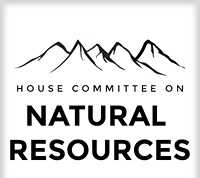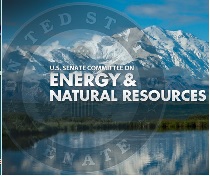Delaney Files Bill to Solve Infrastructure Crisis, Reform Tax Code
Infrastructure and Global Tax Competitiveness Act funds Highway Trust Fund for six years, creates American Infrastructure Fund, makes international tax code more competitive
WASHINGTON, D.C. – December 15, 2014 – (RealEstateRama) — Congressman John K. Delaney (MD-6) has filed legislation, the Infrastructure and Global Tax Competitiveness Act, to strengthen America’s economy by rebuilding the nation’s infrastructure and reforming the broken corporate tax code. The legislation is designed to create jobs, spur economic growth, improve quality of life, and discourage corporate inversions.
“As we head into a new year and a new Congress, it is essential that we keep infrastructure and tax reform at the top of our agenda. The Infrastructure and Global Tax Competitiveness Act creates millions of jobs, brings pro-growth reforms to our broken tax code and helps build the 21st century infrastructure system that my constituents and Americans from coast to coast need. said Congressman Delaney. “A large bipartisan coalition has rallied behind the Partnership to Build America Act and we’ve proven that there is strong bipartisan support for tying international tax reform to new investments in infrastructure. The rising threat of corporate inversions, the looming insolvency of the Highway Trust Fund, and the daily problems caused by inadequate infrastructure all mean that we shouldn’t delay. It’s time for a new solution.”
Delaney’s Infrastructure and Global Tax Competitiveness Act uses repatriated revenue to increase infrastructure investment by imposing a mandatory deemed repatriation tax on corporate earnings currently held overseas. This revenue will fund a six-year reauthorization of the Highway Trust Fund at increased levels and capitalize a new resource, the American Infrastructure Fund (AIF). State and local governments will be able to receive financing from the AIF for transportation, water, energy, education and communications projects. The Infrastructure and Global Tax Competitiveness Act also creates an eighteen month deadline for comprehensive or international tax reform. Under the legislation, if no international tax reform bill passes into law, a fallback option that ends deferral but with greatly reduced rates is triggered. Additionally, the bill establishes a commission to create permanent solvency for the Highway Trust Fund.
The legislation builds on the framework and bipartisan success of the Partnership to Build America Act, which demonstrated that there is a deep vein of support on both sides of the aisle for a new approach that uses tax reform to facilitate new infrastructure investment. Introduced in 2013, the Partnership to Build America Act is supported by a large bipartisan coalition. The bill has 39 Republican and 37 Democratic cosponsors in the House and 1 Independent, 7 Republican, 7 Democratic cosponsors in the Senate.
The Infrastructure and Global Tax Competitiveness Act:
Deemed Repatriation at 8.75% Tax Rate to Pay for Infrastructure
Same rate proposed for cash held abroad by outgoing House Ways & Means Chairman Dave Camp in his tax reform package. Existing overseas profits accumulated by U.S. multi-national corporations would be subject to 8.75% rate, replacing deferral option and current rate of 35%.
Funds six year reauthorization of a Surface Transportation Bill by replenishing the Highway Trust Fund, the federal government’s primary funding mechanism for surface transportation projects.
Capitalizes $50 billion dollar American Infrastructure Fund (AIF) which is leveraged to finance $750 billion of additional transportation, water, energy, communications and education infrastructure projects. Financing only available to state and local governments.
Broader Tax Reform Trigger
Infrastructure and Global Tax Competitiveness Act creates an eighteen month deadline for tax reform, which remains an urgent priority for our economy.
Constructive tax reform proposals have been put forward in both chambers, but Congress needs a deadline to cross the finish line.
Fallback International Tax Reform
If reform is not enacted, a fallback international tax package to make U.S. business climate more competitive would be implemented.
Fallback reform would end deferral and establish new lower rates on international earnings, eliminating the lock-out effect that discourages repatriation and allowing for the free flow of profits back to the United States.
Follows “Option Z” framework developed by Senate Finance Chair Max Baucus, but with different rates. On Active Market Foreign Income, a company would pay a 12.25% tax to the U.S. if they earn their money in a zero tax jurisdiction, but only a 2% tax to the U.S. if they are already paying the OECD average of 25% abroad, with a sliding scale in-between.
Reduces a multi-national company’s incentive to invert.
Long-term Highway Trust Fund Solvency
The Highway Trust Fund’s importance to the nation’s economy cannot be overstated and Congress must act to stabilize the fund so that vital transportation needs can be met.
The Highway Trust Fund faces an annual shortfall of $15-18 billion due to outdated funding stream levels and technological and demographic changes.
The Infrastructure and Global Tax Competitiveness Act provides six years of solvency, providing immediate certainty to the private sector and policymakers.
To create even longer-term certainty and stability, the Infrastructure and Global Tax Competitiveness Act establishes a bipartisan and bicameral commission that is tasked with researching and proposing a solution for permanent solvency of the Highway Trust Fund.


















